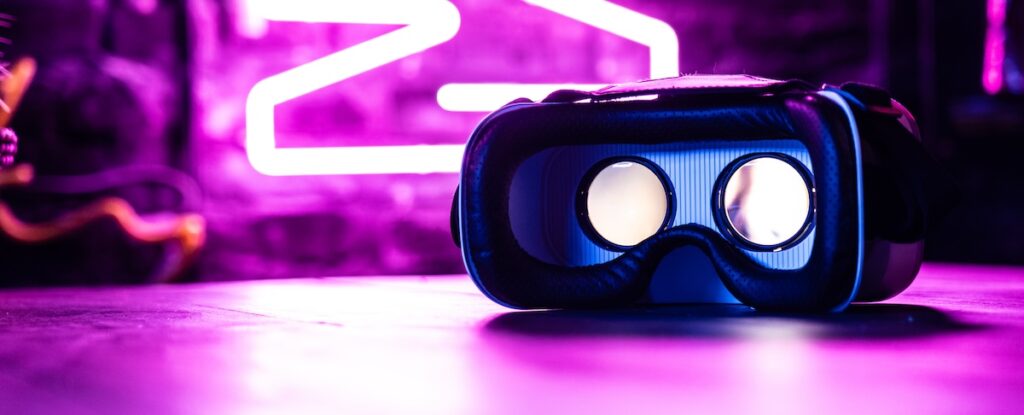[ad_1]
The tech neighborhood is buzzing over Meta’s latest cancellation of a next-gen mixed-reality headset. Was this a vital transfer for a swiftly altering market that has but to ascertain a viable product, or was it a strategic error that forfeits an opportunity to compete with Apple’s Imaginative and prescient Professional? The reply seems to be a little bit of each as Meta seeks the candy spot between innovation and market demand.
Meta’s mixed-reality headset will not be developed. CEO Mark Zuckerberg and different executives reached this resolution after the product assessment assembly, throughout which they threw the headset underneath the bus. As soon as thought of a high contender and a direct competitor to Apple’s Imaginative and prescient Professional, the machine’s growth was clearly not tenable—therefore, the choice to cease engaged on it.
The cancellation of the next-generation Actuality Labs headset can primarily be attributed to the excessive prices related to superior OLED show expertise. Actuality Labs has been an enormous space of focus for father or mother firm Meta, however the division’s bold imaginative and prescient for AR/VR has come at a staggering price, leading to billions of {dollars} in losses.
Zuckerberg is undeterred, although. He continues to imagine that the AR/VR area will quantity to one thing tangible over the following decade or so. Nonetheless, the choice to cancel the headset appears to counsel he’s rethinking his strategy.
Affect of Apple’s Imaginative and prescient Professional
Initially seen as a sport altering machine, Apple’s Imaginative and prescient Professional headset has had hassle catching on. Gross sales have been disappointing, to the purpose that let’s imagine the product has not but discovered its market. Meta might properly have regarded to Apple’s struggles when second-guessing its personal resolution to introduce an expensive mixed-reality headset to a client base that appears extremely uncertain, at current, in regards to the usefulness of such merchandise.
Basically, the digital actuality market appears to be in a state of turbulence. Microsoft’s HoloLens has moved towards area of interest markets with heavy wallets, and Google’s sensible glasses didn’t catch the general public’s consideration. Meta, taking a look at all this, might need determined that now will not be one of the best time to put money into a premium VR headset.

Shift in Market Focus
Meta’s cancellation of the next-generation headset seems to be half of a bigger strategic realignment. As a substitute of going head-to-head with the high-end {hardware} opponents, Meta appears to be specializing in its software program ecosystem. If the corporate manages to create a compelling setting for customers and builders, it should have achieved one thing of worth that it might probably then monetize.
In the long term, Meta’s imaginative and prescient might be in forming partnerships and collaborations with different tech corporations and start-ups centered on growing inexpensive AR/VR options. In the event that they try this, it would open the door to innovation in areas the place Meta might obtain aggressive differentiation, like AI integration or improved connectivity between AR/VR units and smartphones.
From Excessive-Finish to Client-Pleasant Choices
That stated, the projected progress for the worldwide sensible glasses market is nothing in need of spectacular. Estimates name for the sale of 13 million items by 2030, and the common annual progress fee from 2023 to 2030 is anticipated to be as excessive as 53.0%. In 2023, the U.S. marketplace for sensible glasses reached roughly 432,300 items, and this worth is poised to climb.
Whereas high-end objects equivalent to Apple’s Imaginative and prescient Professional may maintain making the information, the true enlargement ought to come from cheaper, extra consumer-friendly merchandise. Meta appears prone to take the lead on this. Its latest foray into the following large factor in computing—mixed-reality (MR) headsets—appears to have the on a regular basis client in thoughts, and never solely the well-heeled VR fanatic.
Future Implications
The premium mixed-reality headset that Meta promised to construct and promote has been canceled, and which will point out a turnaround in technique—away from high-end {hardware} that delivers premium mixed-reality experiences and towards making augmented actuality/digital actuality (AR/VR) expertise extra accessible and sensible. Regardless of cancelling the headset, Meta nonetheless plans to supply a variety of {hardware} and software program options for numerous AR/VR use circumstances, and its vital funding on this space nonetheless provides the corporate an edge within the workplace and training markets.
The way forward for AR/VR might rely much less on cutting-edge units and extra on the sort of inexpensive, on a regular basis merchandise that buyers can simply make use of.
Editor’s word: This text was written with the help of AI. Edited and fact-checked by Owen Skelton.
[ad_2]
Source link



